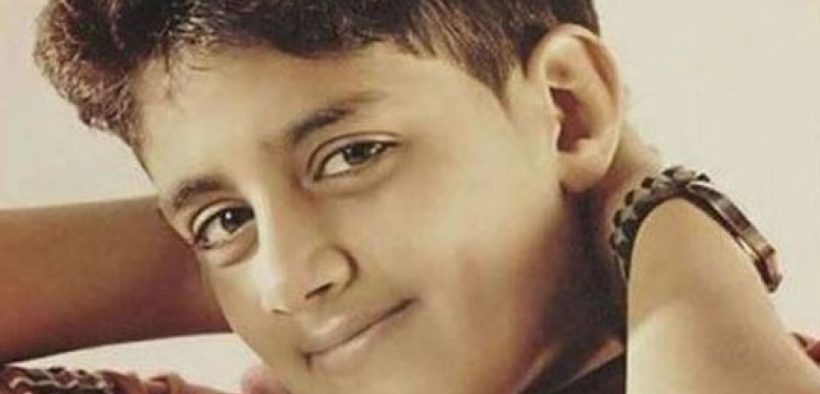Saudi Teen May Be Put To Death After Protesting As A Child

He was arrested in September 2014 and moved to the Dar al-Mulahaza juvenile detention center in al-Dammam city. Reports stated he was held in solitary confinement for a month while being subject to inhumane beatings and torture during interrogations.
Amnesty International made a public declaration on Friday concerning the fate of 18-year-old Saudi national, Murtaja Qureiris who is being held by Saudi Arabian officials.
The organization [Amnesty International] has confirmed that Saudi Arabia’s Public Prosecution sought the death penalty for Murtaja Qureiris in August 2018 for a series of offences [sic], some of which date back to when he was just 10 years old. CNN had revealed this week that he is facing the death penalty and published video footage showing him participating in bike protests in Saudi Arabia’s Eastern Province as a young boy in 2011.
The CNN article detailed the video reviewed by the outlet.
Foot on pedal, 10-year-old Murtaja Qureiris is about to lead the group of around 30 children. In video footage obtained by CNN, he is wearing rolled up denim jeans and black flip-flops on his feet, and grinning at the camera recording the event. It may look like a regular bike ride, but the group is staging a protest.
Moments after they set off, Qureiris gets lost in the sea of boys, struggling to keep up as he lifts a megaphone and presses it against his lips. “The people demand human rights!” he shouts.
Executions Common In Saudi Arabia
“The Saudis executed 37 people on one day in April, most of them minority Shia Muslims. The body and severed head of one man were pinned to a pole as a warning to others,” wrote Sky News. “Among those killed was Abdulkareem al Hawaj, who had been arrested at the age of 16 for involvement in anti-government protests. It was the largest number of executions in a single day since 2 January [sic], 2016, when 47 people were killed,” the outlet continued.
“The Saudi Arabian authorities have a chilling track record of using the death penalty as a weapon to crush political dissent and punish anti-government protesters – including children – from the country’s persecuted Shi’a minority,” said Lynn Maalouf, Middle East Research Director at Amnesty International in relation to the plight of Qureiris.
Qureiris was arrested in September 2014 and moved to the Dar al-Mulahaza juvenile detention center in al-Dammam city. Reports state he was held in solitary confinement for a month while being subject to inhumane beatings and torture during interrogations.
“In May 2017 he was moved to al-Mabaheth prison in al-Dammam, an adult prison, even though he was just 16 years old. Throughout his detention he was denied access to a lawyer until after his first court session in August 2018 at the Specialized Criminal Court, an anti-terror court set up in 2008, that has increasingly been used for cases involving human rights activists and protesters,” Amnesty International details.
Human Rights Remains An Issue In Saudi Arabia
In a public relations attempt to improve their international standing, the Kingdom of Saudi Arabia has used World Wrestling Entertainment (WWE) as a way to grab public headlines. The latest in a series of contracted events was Summer Showdown which took place this past Friday. These events have come under heavy scrutiny after Saudi Arabia was found to have ordered the murder and dismembering of journalist Jamal Khashoggi. However, humans rights limitations extend past extrajudicial murders and brutal public executions.
“In 2018, Saudi Arabia’s discriminatory male guardianship system remained intact despite government pledges to abolish it. Under this system, adult women must obtain permission from a male guardian—usually a husband, father, brother, or son—to travel abroad, obtain a passport, marry, or be discharged from prison,” says Human Rights Watch (HRW) in their latest World Report on the kingdom.
“Saudi authorities limit a woman’s ability to enter freely into marriage by requiring her to obtain the permission of a male guardian. A woman’s consent is generally given orally before a religious official officiating for the marriage, and both the woman and her male guardian are required to sign the marriage contract. Whereas men can marry up to four wives at a time,” read a January 2019 report from HRW entitled, Saudi Arabia: 10 Reasons Why Women Flee.
The Absher application is used in Saudi Arabia to violate the autonomy of women living in the country. “While the Absher isn’t mandatory, it has come to replace the travel permission cards women needed within Saudi Arabia,” Citizen Truth reported earlier this month.
















Mi chiedo se il nostro governo abbia già interrotto i rapporti diplomatici con governi dalla “giustizia”così nefanda e calpestatrice dei diritti umani come sono i paesi arabi.E se non li ha interrotti, che cosa aspetta.